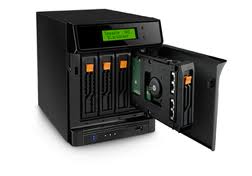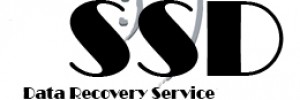NAS SAN server data recovery Toronto
NAS SAN server data recovery Toronto
NAS SAN server data recovery Toronto provide by SSD data recovery Toronto. Storage Area Network and Network Area Storage are used as a high-speed sub-network of public storage devices. A storage device is a device, which uses disks or disk for huge data storage. Its architectural construction functions in such way that allows all storage devices available to all servers on a LAN, MAN and WAN. If greater storage devices are connected to it then they too will be available from any server in the larger network. In SAN’s case, the server simply functions as a path between the client side and the stored data side. As saved data does not exist directly on any of a net’s servers and server working power is used for business applications development and network capacity is made available to the end users of the network. This puts a great deal of load in determining a data recovery process in case of data loss. Data fault is possible in SAN and NAS because of hardware failure, improper delete command usage etc. In such cases uses can follow any of the following to provide data recovery feature to the network storage system. The most common form of data recovery is RAID. RAID stands for Redundant Array of Independent Disks. Based on the level of disk usage, RAID data storage can be classified into several levels. Each level has its own set of advantage and disadvantage. It’s up to the user to determine the correct level for the system so as to ensure the data safety of the system in suitable expense. Need expertise to recover you NAS SAN server, contact us – professional NAS SAN server data recovery in Toronto and GTA areas.

Corrupted RAID
We are specialists in many brands name, like Apple, WD, Seagate, IBM, HP, Dell, Compaq, LaCie, LSI, Iomega, Cisco, D-Link, Linksys, Buffalo, QNAP, RunCore, Adaptec, Promise RAID system failure
• RAID Controller failure
• Multiple drives malfunction
• Replace the media components
• Formatted and deleted of array
• Lost array configuration
• RAID degraded
• Logical corruption
Corrupted or missing documents
We are able to recover data from any corrupted or missing files, like Words, Excel, Powerpoints, Outlook, Outlook express, PDF, picture, video with various industry level technology to recover the data.
Corrupted database or account file
We are able to recover data from any corrupted or missing files, like Access, SQL, MySQL, Simply Accounting, Quickbooks, Acomba, MYOB with various industry level technology to recover the data.
RAID 0, the information is split across altered hard drives. Hence, as predictable, at the server level, the performance of this RAID level is very extraordinary.
RAID 1 is known for its mirroring ability. Two hard disks are used, out of which one saves identical data. In other words, similar data is saved in both the hard drives. Thus, data redundancy is provided in this level.
RAID 3, data is divided at byte level. In this technique, one extra hard disk is used for saving the parity bits.
RAID 4 is to that of RAID 3. It uses a devoted parity disk, but the modification is that, it strips the data and binary information at block level.
RAID 5 is perhaps the most prevalent RAID level. It also uses the same block level stripping as that of the previous level, but a single devoted hard drive is not used for storing the parity data.
RAID 6 is a technical extension of the RAID 5. Two parity blocks are generated in the RAID 6 level, to assure the process of data recovery.
RAID 10 is often called to as RAID 1+0. The reason for this naming is that this RAID data recovery level uses the joint features of RAID 0 and RAID 1.
Last, but not the least- RAID level 01 can also be called as RAID 0 + 1. It also does not use any parity generation procedures for data recovery. Many people get tangled between the functionality RAID 10 and RAID 01.
The various SAN and NAS data recovery schemes using RAID technology is listed above elaborately. When SAN, NAS system failed and need RAID NAS SAN server data recovery Toronto, SSD data recovery Toronto provide SAN, NAS data recovery service in Toronto and highly recommended you shut down the system, remove all drives in the system and contact TIM data recovery for RAID NAS SAN data recovery Toronto. Don’t swap the drives, rebuild the RAID and attempt to recover data yourself. Any uncertain attempting to recover, it will make less possible to recover your data or loss all chance to recover data. Contact SSD data recovery Toronto for RAID NAS SAN server data recovery Toronto.
